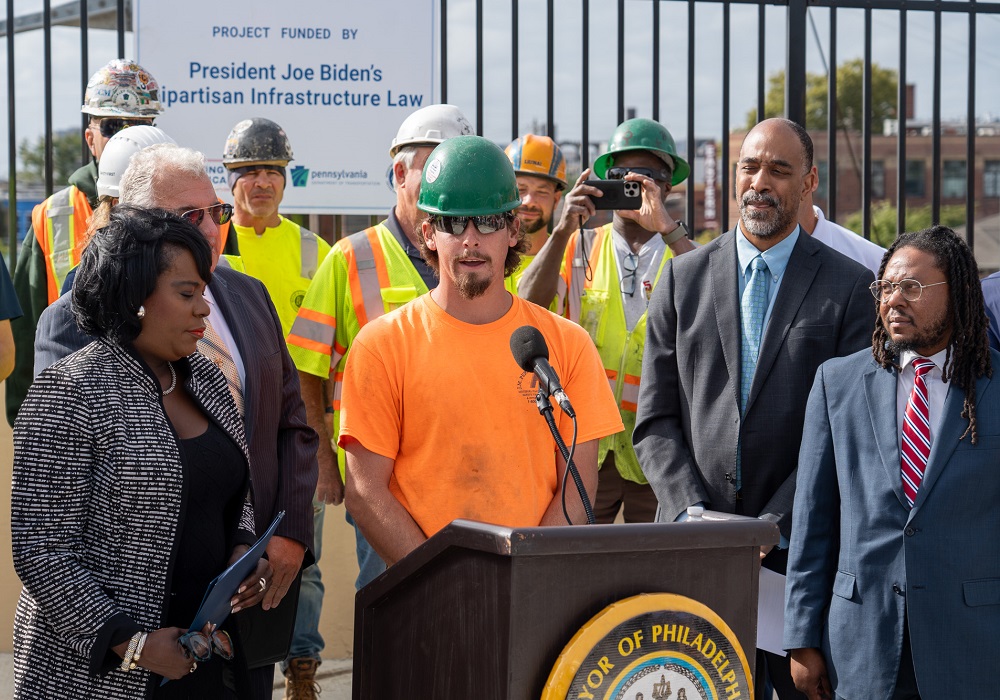On September 24, the reconstructed Montgomery Avenue Bridge officially reopened, marking the completion of the City of Philadelphia’s first major Bipartisan Infrastructure Law (BIL) funded project. Montgomery Avenue Bridge is a key connector in the Strawberry Mansion neighborhood, and its reopening facilitates vital access to and from North Philadelphia.
Thanks to the BIL, the City of Philadelphia has seen an influx of infrastructure funding coming into the city. The Parker Administration is committed to ensuring that these federal investments create economic opportunity for all Philadelphians, particularly people of color who have historically been excluded from opportunity. The City of Philadelphia’s Infrastructure Solutions Team (IST) established a two-pillar approach to spearhead this work – promoting a local and diverse workforce and increasing diverse business participation.
How is the IST Advancing Racial Equity with BIL Funding?
Equitable Workforce
In April 2024, President Biden announced Philadelphia as one of four new Workforce Hubs to ensure all Americans can access the good jobs created by the President’s Investing in America agenda, which includes the Bipartisan Infrastructure Law.
One of the City’s first actions as a Workforce Hub was announcing new policies to create more pathways into well-paying jobs. Specifically, the City announced that it will employ Geographic and Economic Hiring Preferences (GEHP) on select public works projects. GEHP establishes goals for the hiring of apprentices and journeypersons residing in economically disadvantaged zip codes. Implementing hiring preferences is an important tool to increase access and economic opportunities for workers who have historically faced high barriers to participation in construction and infrastructure careers.
The City recognizes that apprenticeship and pre-apprenticeship programs are essential to the development of our labor workforce. These programs provide hands-on, paid training that prepare individuals for long-term careers in construction. By encouraging greater apprenticeship participation, particularly from underrepresented communities, GEHP is designed to foster an inclusive infrastructure workforce and create a positive economic impact for residents, workers, and the community at large.
Diverse Businesses
In October 2023, the City announced its first ever Public Works Procurement Forecast. The forecast aims to increase transparency around the City’s contracting opportunities and provide potential contractors more time to plan and prepare competitive bids. The City then released its six-month update in April 2024, which included 130 projects totaling over $520 million in upcoming work. The scope of work crosses multiple trades and upcoming demand for prime contractors and subcontractors in fields such as Highway and Bridge Construction; Electrical Installation; Water and Sewer Structures; Manufacturing, Trucking and Warehousing; and General Labor and Equipment Operation.
Looking Ahead
Next week, the City will be releasing its updated Public Works Procurement Forecast during the 40th Annual Philadelphia Minority Enterprise Development (MED) Week. The procurement forecast includes expected projects over the next 18-24 months and the list is refreshed every six months.
This year’s MED Week theme is “Investing in the Future: 40 Years of Helping Minority Businesses Lead the Way.” Be sure to check out the Department of Commerce’s official events listing to find more than 40 events and workshops happening around the city this MED week.

